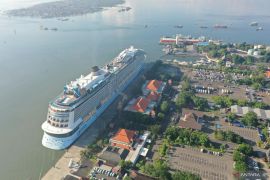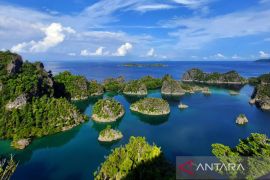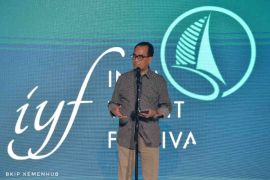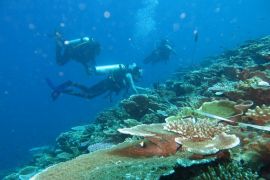After signing a cooperation agreement with the KKP on Tuesday, Yahya noted that the final purpose of developing marine tourism was for the prosperity of the fishermen.
He explained that the business industry was generally divided into three parts, namely production, trade and services.
While the smallest added value normally existed in the production aspect, such as agriculture and fisheries, Yahya claimed that the greatest value was in services.
"Hence, if the coastal communities, including fishermen, can take advantage of the services in marine tourism development, then they will be more empowered and potentially be able to increase their income," he stated.
The process of developing marine tourism still requires human resources contribution as tourists guides. As many as 4 thousand people are needed in 2017, and in the next two years, the number will rise to 12 thousand people.
The Tourism Ministry is also targeting to certify marine tourism services to approximately 1 thousand business units and predicting to certify more in 2019, with as many as 2 thousand business units.
Meanwhile, Maritime Affairs and Fisheries Minister Susi Pudjiastuti believed that marine tourism in Indonesia could actually bring more advantages for the local people compared to the same tourism theme in other countries, such as Maldives.
Earlier, the Speaker of Peoples Consultative Assembly (MPR), Zulkifli Hasan, reminded that public policy should always support fishermen, especially those traditional fishermen who are often marginalized and need to be optimally empowered by the state.
The fishermen are often facing challenges related to fishing permits, as well as restrictions at the local or central government level.
He acknowledged that the reformation era has brought a lot of significant progress, such as regional autonomy and infrastructure development, but at the same time, it has also caused disparities in many aspects of life.
"Disparity is a fact that has not been overcome. It is the result of the long development process," Hasan noted. (*)
Editor: Heru Purwanto
Copyright © ANTARA 2017











